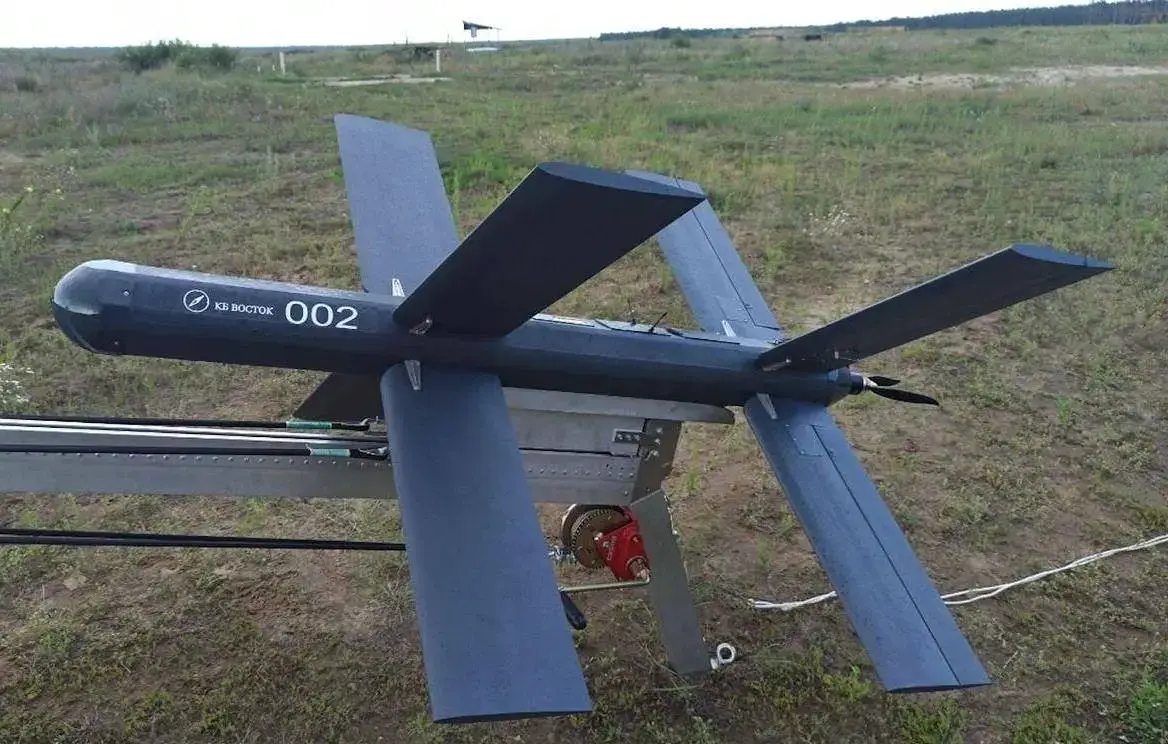The Russian company Vostok Design Bureau has officially initiated the mass production of the Scalpel loitering munition, colloquially known as the kamikaze drone. The country has ambitious plans to deploy several thousand units to its military forces stationed in Ukraine by the close of 2024. This strategic move underscores the escalating reliance on drone warfare by Russian forces engaged in the ongoing conflict with Ukraine. The Scalpel, touted as a budget-friendly variant of the more widely recognized Lancet drone, has already been employed in Ukraine, albeit in limited numbers. The decision to ramp up its production serves as a testament to the efficacy of unmanned attack platforms in contemporary warfare. The entity overseeing the Scalpel’s development, this surge in production aims to augment the capabilities of Russian forces operating in the region.
Key attributes of the Scalpel, include a payload weight of 5 kg and a take-off weight of 10.5 kg. Featuring a cruising speed of 120 km/h and an impressive range of 40 km, the Scalpel is designed to provide a cost-effective solution for precision strikes. Its evolution reflects a broader trend in military strategy, emphasizing the utilization of unmanned systems for both reconnaissance and combat operations, thereby minimizing the risk to human soldiers. Labeled “kamikaze drones” due to their ability to linger over a target area before executing a strike, loitering munitions have been part of Russia’s military arsenal in Ukraine since 2023. The Vostok Design Bureau has introduced several enhancements to the Scalpel, including a more compact and rapidly deployable launch system, improved communications, and regular updates to adapt to evolving battlefield conditions.

The success of drones, particularly the Lancet, has granted Russian forces a notable tactical advantage. The Lancet’s track record in Ukraine has demonstrated the effectiveness of loitering munitions in disrupting enemy operations and precisely eliminating key assets. The introduction and subsequent escalation of Scalpel production are anticipated to further solidify this approach, providing a combination of reconnaissance and strike capabilities that can be swiftly deployed across the battlefield. Loitering munitions represent a dynamic and evolving threat on the battlefield for both Ukrainian and Russian forces, particularly in their capacity to target and destroy combat vehicles, tanks, and artillery systems. These unmanned aerial vehicles, designed to hover over a target area before identifying and striking high-value targets with precision, offer a substantial tactical advantage.
Their deployment complicates traditional defense strategies, compelling both sides to adapt to a warfare landscape where crucial assets can be eliminated with little warning. The increased utilization of such drones underscores a shift towards more remote and technologically advanced forms of combat, with the potential to significantly impact the effectiveness and survivability of armored units and artillery positions in the ongoing conflict. This transition towards a more automated and remote form of warfare by Russia has the potential to alter the dynamics on the ground in Ukraine. The heightened deployment of drones like the Scalpel and Lancet signifies a move towards less costly yet highly effective military assets capable of delivering decisive blows without the necessity for direct human involvement in combat zones. The efficacy and ethical implications of such technology will undoubtedly remain subjects of intense scrutiny and debate among defense experts and policymakers alike.
















